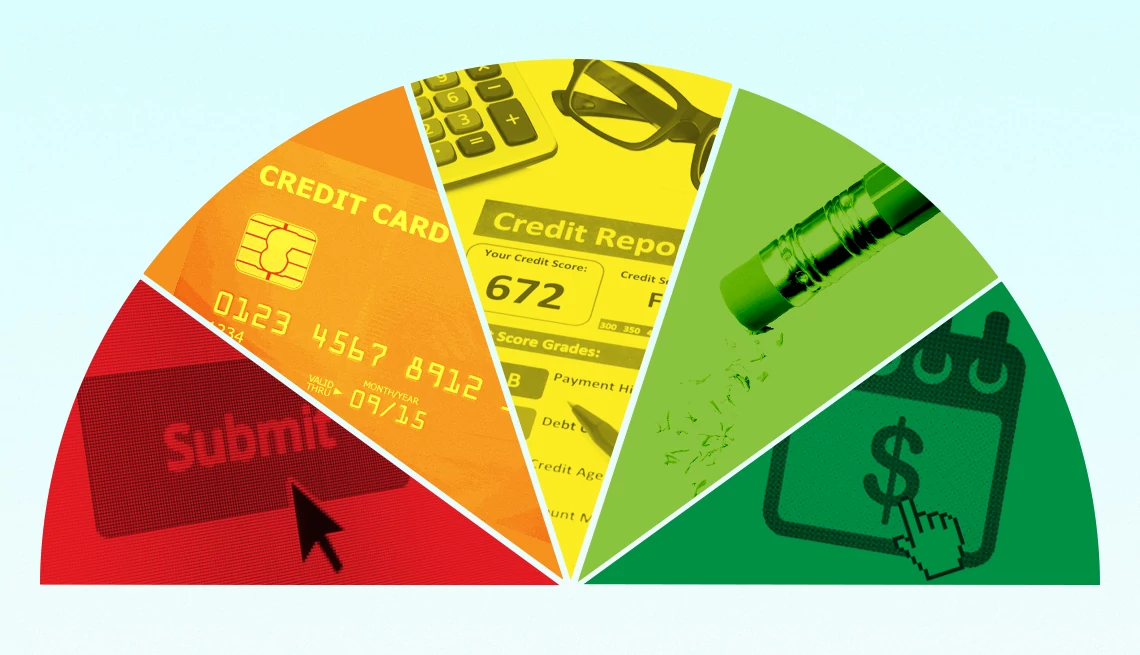
5 quick ways to boost your credit score
- Select a language for the TTS:
- UK English Female
- UK English Male
- US English Female
- US English Male
- Australian Female
- Australian Male
- Language selected: (auto detect) - EN
Play all audios:

Carrying a large credit card balance from month to month? If you’re in the position to make a big credit card payment — say, using a windfall that you recently inherited — you could see
fast results. Why? Because a big part of how credit scores are calculated is based on a consumer’s debt-to-credit ratio — the amount owed as a proportion of a person’s total credit limit.
This is also known as credit utilization. It comprises 30 percent of your FICO score, which is the credit score most widely used by lenders and creditors. To calculate credit utilization,
credit bureaus look at the total credit limit across all of your loans and credit cards, which is why closing some can work against you. Generally, you should keep your credit utilization
ratio at no more than 30 percent, Experian says. If your credit utilization ratio is above that, paying off revolving balances can reinvigorate your credit score. Dalton Tigner, a partner
at Tigner Insurance & Associates in Tulare, California, says one of his clients paid off $10,000 in debt, reducing his credit utilization from 70 percent to 20 percent. The client’s
credit score rose 125 points in two months, he says. 2. REQUEST A CREDIT LIMIT INCREASE Credit limits on credit cards typically aren’t set in stone, says Ryan Marshall, a financial advisor
at Wealth Enhancement Group in New York. “A lot of people open up a card and see that limit and assume it’s there forever. But if you’re disciplined and can increase that limit, you can play
around with that utilization ratio a little bit,” he says. Typically, you can request a credit limit increase through your credit card company’s website or mobile app. Some credit limit
requests get approved immediately. 3. CHECK YOUR CREDIT REPORT FOR ERRORS Correcting mistakes on your credit reports can also raise your credit score, fast. Last year, credit bureaus
permanently extended a pandemic program that lets consumers see their credit reports once a week for free. You can request copies of your credit report from each of the three major credit
agencies — Experian, Equifax and TransUnion — at AnnualCreditReport.com. Unfortunately, Krueger says that older adults often don’t check their credit reports, especially folks who’ve already
paid off their mortgage. “I think people assume their credit’s pretty good,” he says. “They can be surprised.” Consider: 44 percent of Americans who checked their credit reports found at
least one error, according to an investigation this year by Consumer Reports and the nonprofit consumer advocacy organization WorkMoney. More than a quarter of the errors were bad enough to
hurt their credit scores.
